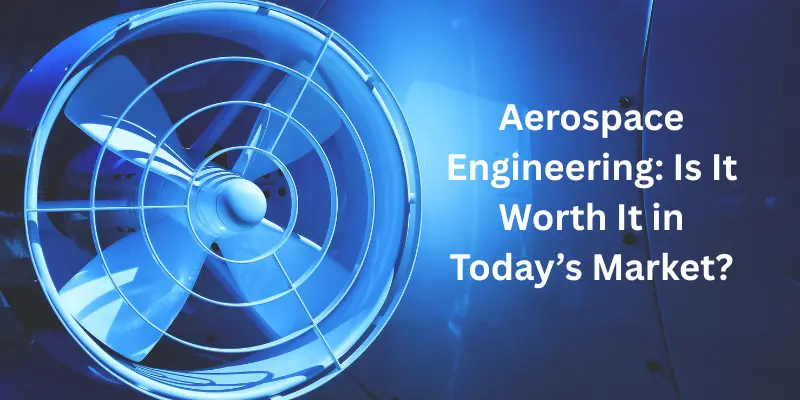

Rocket science isn’t just for astronauts anymore. Aerospace engineering once meant working for NASA or Boeing, but today, the field reaches far beyond. From drones to space tourism, new opportunities are taking off.
If you're wondering whether a bachelor’s degree in aerospace engineering is still worth it, this post will help you decide in today’s fast-changing job market.
When you hear "aerospace," you might picture planes or astronauts. But the field now includes flying cars, drones, and space tourism. It's evolving fast and opening new career paths.
Here’s a quick look at Aerospace 2.0—what’s new, where the jobs are, and why it’s drawing top tech talent.
Aerospace 2.0 – Where the Jobs Are Now
Forget what you thought you knew about aerospace. The industry isn’t just about NASA and Boeing anymore. Today, jobs are opening up in:
Aerospace + Tech: Cross-Industry Opportunities
Tech isn’t just helping aerospace—it’s becoming part of it.
Commercial vs. Defense vs. Private Space – What’s Growing?
Here’s a quick breakdown:
Commercial Aerospace
Defense Aerospace
Private Space
Considering aerospace? High pay and job security sound appealing—but are they real? This article explores salary, job stability, early career challenges, long-term growth, hidden costs, and if the degree’s return is worth it.
Entry-Level Reality vs. Long-Term Growth
Aerospace engineering sounds impressive—and it is. Designing aircraft and spacecraft is no small feat. But here’s the truth: it’s not for everyone, and that’s okay.
This article helps you decide if it’s right for you, who thrives in the field, and tech-minded alternatives if it’s not.
Hidden Costs of the Degree
Yes, aerospace can pay well. But what about what it costs to get there?
Here are some real costs to keep in mind:
Aerospace engineering is impressive and challenging. But it’s not for everyone—and that’s fine.
Wondering if it’s for you? This article explains who fits, who doesn’t, and offers tech-related alternatives to consider.
Who Actually Thrives in This Field?
You might think success in aerospace engineering depends on getting top grades or loving airplanes. Sure, those help—but that’s not the full story.
Traits That Matter Most
People who do well in aerospace engineering usually have:
Alternatives That Use Similar Skills
Not into aerospace? No problem—your skills still matter and fit well in other related fields.
The Future of Flight and Beyond
Imagine taking a vacation to space, or flying from New York to London in just a few hours. It’s not science fiction anymore—these things are getting closer every day.
Here’s what’s coming:
What Employers Are Actually Looking For
A college degree is important, but it’s not enough on its own. Today’s employers are asking:
“Can you solve problems? Can you keep learning? Can you work with people and new tech?”
How to Stay Relevant (Even Before You Graduate)
Here’s how to build skills and stay competitive:
Why Do You Want to Study Aerospace?
Before you send in your application or commit to years of study, pause and ask: Why aerospace?
Some common reasons people choose this path:
Be honest. Passion drives you through challenges. Prestige fades, and money only matters if you enjoy the job.
Are You Ready for the Academic Grind?
Let’s be real: aerospace engineering isn’t easy.
You’ll deal with tough courses, lots of math and physics, long study hours, and challenging projects. Burnout happens even to top students.
Ask yourself: Can you handle the workload? Are you ready for challenges? Will you ask for help? This is to prepare, not scare you.
Do You Have a Backup Plan?
Wait—what? A backup plan?
Yes. And here’s why: Having a Plan B doesn’t mean giving up. It means being smart.
Interests change, and life happens. A backup plan isn’t a weakness—it’s smart. You might prefer science over engineering, or hands-on work instead of a desk job.
Think about:
Aerospace is changing fast, and that means there’s space for fresh ideas and bold thinkers. If you're excited but unsure, take a step. Talk to someone in the field, audit an online course, or try a small project. Explore first. You might just find it’s the perfect fit for you.